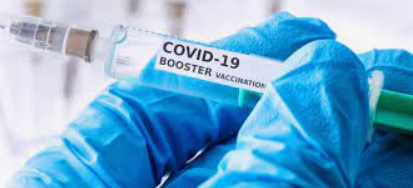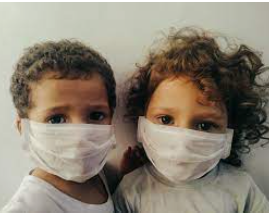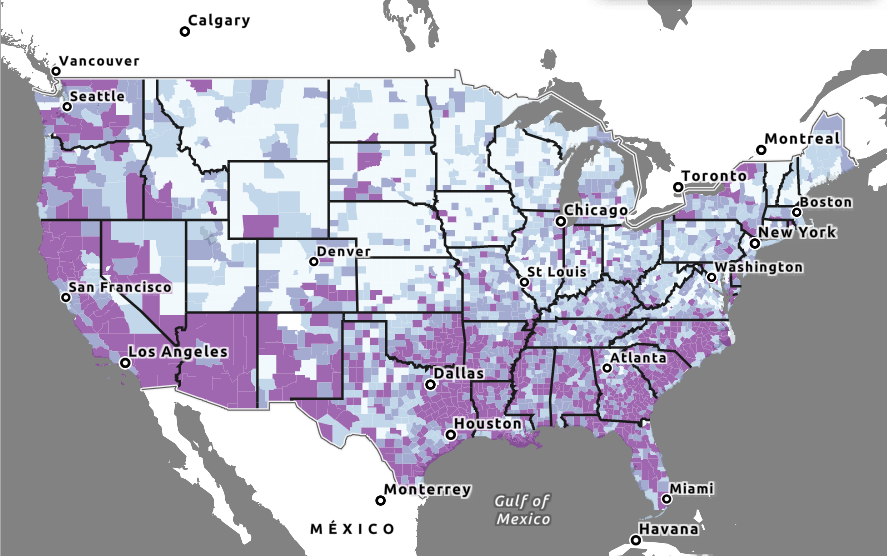COVID-19 Breakthrough Hospitalizations
This brief describes the characteristics of fully vaccinated hospitalized patients who have COVID-19 breakthrough infections, in comparison to people who are not fully vaccinated and hospitalized with COVID-19. Click HERE to read the brief from the Peterson-Kaiser Research.
The Emergence of Omicron and What You Need to Know
 The Centers for Disease Control and Prevention (CDC) is working with state and local public health officials to monitor the spread of Omicron. As of December 20, 2021, Omicron has been detected in most states and territories and is now the major cause of COVID illnesses. For more from the CDC, click HERE.
The Centers for Disease Control and Prevention (CDC) is working with state and local public health officials to monitor the spread of Omicron. As of December 20, 2021, Omicron has been detected in most states and territories and is now the major cause of COVID illnesses. For more from the CDC, click HERE.
Kaiser Health News shares more on Omicron and other Coronavirus variants HERE.
Monoclonal Antibodies as an Effective COVID-19 Treatment for Native Americans
 COVID-19 hit the Native American communities especially hard. Thankfully, there is a treatment modality that is working. Monoclonal Antibodies may be a crucial treatment for high risk Native American who contract COVID-19. Click HERE to read more.
COVID-19 hit the Native American communities especially hard. Thankfully, there is a treatment modality that is working. Monoclonal Antibodies may be a crucial treatment for high risk Native American who contract COVID-19. Click HERE to read more.
The CDC’s Strategy to Reinforce COVID-19 Vaccine Confidence
"Vaccine with Confidence" is the strategic framework of the Centers for Disease Control and Prevention (CDC) to strengthen vaccine confidence and prevent outbreaks of vaccine-preventable diseases in the United States. Strong confidence in COVID-19 vaccines within communities leads to more adults, adolescents, and children getting vaccinated ― which leads to fewer COVID-19 illnesses, hospitalizations, and deaths. Click HERE to learn more.
COVID-19 Boosters Toolkit – UPDATED

The Public Health Communication Collaborative offers infographics, talking points and sample social media graphics regarding COVID-19 vaccines. Click HERE to access the toolkit.
COVID-19 Vaccine Equity for Racial and Ethnic and Minority Groups
The pandemic has highlighted issues in health equity and access to vaccinations for minority populations. The Centers for Disease Control and Prevention (CDC) presents recommendations to improve vaccine equity for all. Click HERE to learn more about vaccine equity initiatives.
CDC Toolkit for Pregnant Women and New Parents
 A baby brings joy and their own set of concerns for new parents. COVID-19 increases the concerns. The Centers for Disease Control and Prevention (CDC) has developed a tool kit for those having babies and new parents. Click HERE and access the toolkit.
A baby brings joy and their own set of concerns for new parents. COVID-19 increases the concerns. The Centers for Disease Control and Prevention (CDC) has developed a tool kit for those having babies and new parents. Click HERE and access the toolkit.
Healthy Aging in a Pandemic World Brochure
As we look at healthy aging in a pandemic world, we need to assess the changes that the last two years have had on our lives, our health and our relationships—and find new ways that community resources can help us continue to adapt, reset and reconnect." As part of its campaign, the Eldercare Locator published a brochure, Healthy Aging in a Pandemic World: What Older Adults and Caregivers Need to Know.
The Eldercare Locator is a free search service that provides a list of local services based on zip code. The website offers education and information on resources. Learn more HERE.
No Way to Grow Up: The Pandemic Crisis for American Children
 Children fell far behind in school during the first year of the pandemic and have not caught up. There is also an increase in mental health issues and suicide rates. The New York Times looks more at the pandemic’s effect on children. Click HERE to read the article.
Children fell far behind in school during the first year of the pandemic and have not caught up. There is also an increase in mental health issues and suicide rates. The New York Times looks more at the pandemic’s effect on children. Click HERE to read the article.
COVID-19 Best Practices for Community and Faith-Based Organizations
Living through a global pandemic such as COVID-19 can lead to a range of social, emotional, behavioral, and cognitive problems. It is important that individuals are able to identify the signs that children and youth may be struggling and know the best ways that they can provide support. Community and faith-based organizations are excellent supports for their communities. Click HERE for best practices to help.
Minority Health Social Vulnerability Index Explorer
 Do you want to know more about the make-up of your community including social vulnerabilities and health outcomes? This index is a customized version of the Centers for Disease Control and Prevention/Agency for Toxic Substances and Disease Registry Social Vulnerability Index (CDC/ATSDR SVI). Minority Health SVI uses data from the United States Census Bureau and other public sources to help identify communities that may need support before, during, and after disasters, with a focus on minority racial, ethnic, and language groups as well as medical vulnerability. Click HERE.
Do you want to know more about the make-up of your community including social vulnerabilities and health outcomes? This index is a customized version of the Centers for Disease Control and Prevention/Agency for Toxic Substances and Disease Registry Social Vulnerability Index (CDC/ATSDR SVI). Minority Health SVI uses data from the United States Census Bureau and other public sources to help identify communities that may need support before, during, and after disasters, with a focus on minority racial, ethnic, and language groups as well as medical vulnerability. Click HERE.